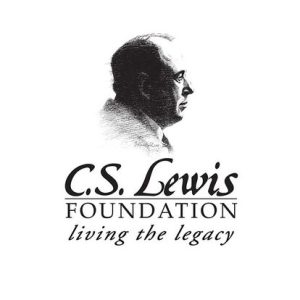
EPISODE SUMMARY:
In this episode and the next, we are going to consider some theological questions that Lewis presses us to consider when considering the possibility of other intelligent races of biological creatures. What if there are unfallen creatures? What might that mean for Christianity? What is there are other fallen creatures? What might that mean for the incarnation? Moreover: what is the fall anyhow and how does Lewis help us understand the nature of the spiritual battle?
EPISODE NOTES:
The Idea of a Cosmic Fall (Genesis 1-3)
To begin to understand the doctrine of the fall, let’s enter into the Biblical Story. In Genesis 1 and 2 we find God creating a world full of beauty, order, and abundance. He creates a people—in his image and likeness—and charges them to rule over all of creation. But then, by chapter three, something goes terribly wrong. The serpent is introduced without fanfare in 3:1 as a being “more crafty than any of the wild animals the Lord God had made.” The serpent, identified canonically as Satan, here represents a “chaos creature” and “the mouthpiece of a Dark Power.” The existence of the chaos creature signifies that an alien (and finite) force has already entered and disrupted the cosmic order established by God in Genesis 1– 2. Genesis 3 records how sin and evil enter the human realm, locating the brokenness of the world in the disobedience of humanity’s representative couple.
A few observations:
- First, evil was already present before the fall of the first humans. This is the angelic fall that Lewis wrote about.
- Second, God is not the author of sin or source of evil. Divine wrath is not an eternal attribute of God. God is essentially loving, and divine wrath is God’s love expressed when creatures defy him.
- Finally, Evil and sin originates with creatures, creatures God created as “good.”
How then, did the first sin or evil arise?
The answer, according to Dr. Paul Copan: A gradual (and free) turning of the soul away from God to created things. The first sin was “a failure of focus.” As Copan says, “creatures failed to pay attention to God as the highest Good, and they failed to attend to the reasons for loving God supremely.” So, this first sin wasn’t a matter of a weak will or irrationality or mistaken thinking. It was a failure to see and delight in God as our supreme good!
How might we think about the nature of spiritual battle, something that Lewis will illustrate throughout the Ransom trilogy?
Lewis here addresses what we may call “the myth of neutrality.” The idea is that nothing is neutral: everything either points to and illuminates the divine (and thus is sacred) or is an instance of evil and corruption and deception; pointing away from God and goodness to something empty, enslaving, evil. I think the first thing to notice, because we don’t usually think about it in these terms, is that there is nothing neutral: every square inch of this world is claimed by God, and counter-claimed by the evil one.
Can believers be possessed by demons?
The first thing to address or note is that Christians cannot be possessed by demons. We can’t be completely in Satan’s control. But that doesn’t mean that we can’t give them, to use the biblical language, a “foothold” in our life. We must we more aware as Christians of the nature of the spiritual battle and the very real possibility of demonic involvement in our own actions.
To use language Lewis employs in his book Mere Christianity, Christians find themselves in “enemy-occupied space” right now. We live in the silent planet. Yet we must not cede inhabitable space to the enemy: every portion of life and culture is a sacred space; a space where Jesus is Lord, and as followers of Christ, our job is to faithfully serve Jesus in all the spaces he has called us to inhabit.
What is the main weapon Satan uses in his battle over God and the forces of goodness?
The #1 weapon Satan and his horde uses in the battle is deception. One of the most important passages in spiritual warfare is found in 2 Corinthians 10:3-5 where we learn that part of the battle we are engaged in as believers is in demolishing the false ideas and arguments that set themselves up against the knowledge (not power) of God.
As we work our way through the Ransom Trilogy, we’ll see this spiritual battle unfold as the forces of evil engage in a frontal assault on God and his followers through deception and lies.

RESOURCES MENTIONED:
- Clint Arnold, Three Crucial Questions About Spiritual Warfare
- S. Lewis, Out of the Silent Planet
- S. Lewis, That Hideous Strength
- Christiana Hale, Deeper Heaven
- Greg Koukl, “Seeing the Unseen: The Nature of Spiritual Warfare”




